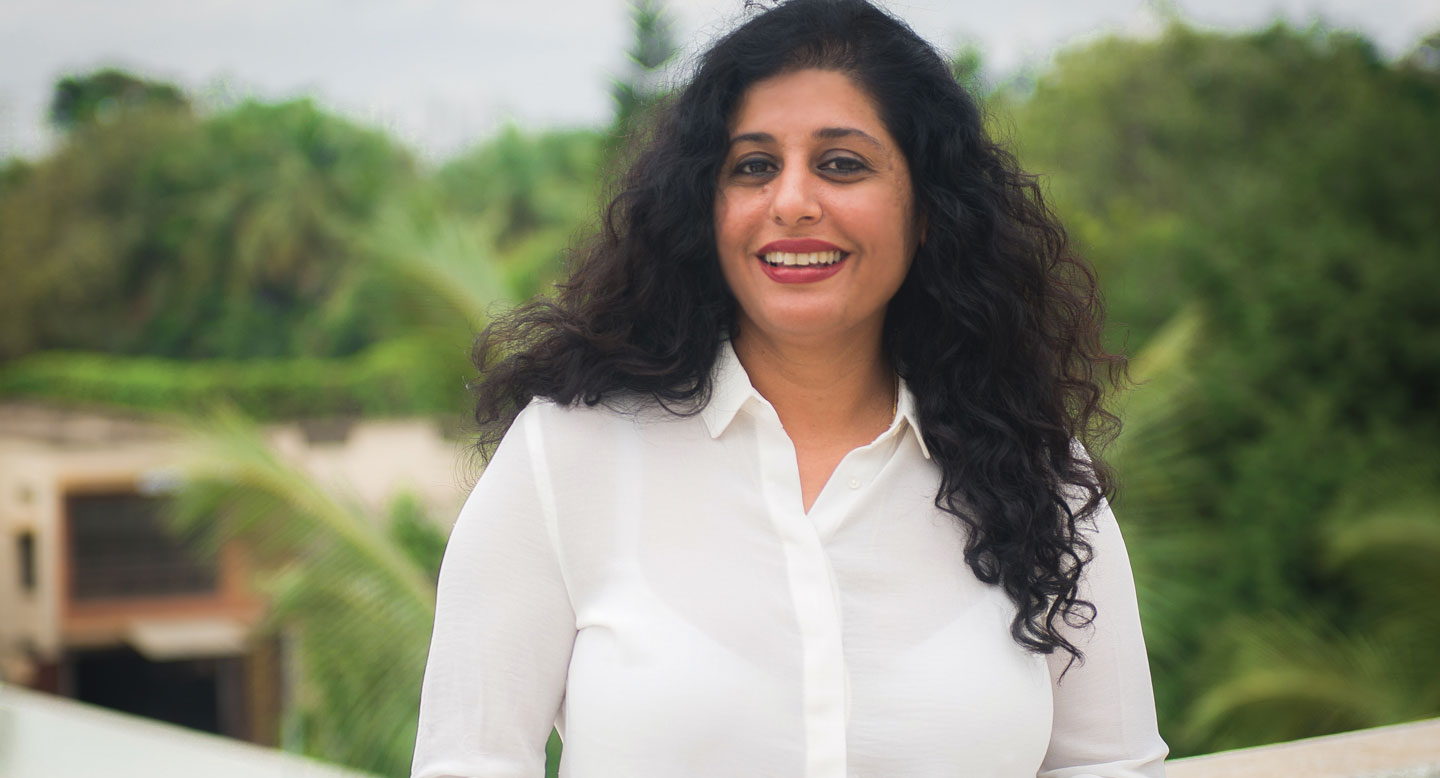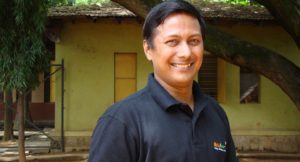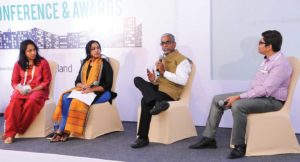Founding Years’ flagship brand, KLAY Schools, has established over 41 day care centres that function on-site or near work sites in four Indian cities. With a professional management at the helm, the company has created a templatised model that offers seamless service, agnostic of location and geography, making it easier for mothers to get back to work.
As the mother of a four-year-old, I’ve gained tremendous respect for my fellow parents as the struggle (alongside the joy, of course) of raising a child in this world is very real. Clearly, I’m not the only one, as people have taken to social media like never before to stop the slew of social judgment and more importantly, display an empathy towards every mom (and dad, if I may add) that exists; the stay-at-home mom, the working mom, the work-from-home and any other category I might have omitted. “Despite the urbanisation of India there are few support structures for nuclear families, especially, for working women,” rues Priya Krishnan, founder-CEO, Founding Years Learning Solutions Pvt. Ltd. (Founding Years). Women in India represent only 24 per cent of the paid labour force, as against the global average of 40 per cent, according to a recent McKinsey Global Institute report. Krishnan, who returned to India after having spent over five years in the U.K., sought to set right the situation and contribute towards encouraging mothers to go back to work. Founding Years is the parent company of KLAY Schools, a chain of day care centres cum preparatory schools, with a presence in four Indian cities. Today, there are 41 KLAY Schools spread across Bengaluru, Delhi-National Capital Region, Mumbai and Hyderabad that offer day care, toddler schooling, Kindergarten-1, Kindergarten-2 and after school care.
In June 2016, the company received its Series-B worth US $16 million in a round led by Peepul Capital with participation from existing investors, Kaizen Private Equity. With these funds, Founding Years aims to establish KLAY Schools in Chennai and Pune, and look further to tap the potential of Singapore and Dubai, possibly by the end of this fiscal.
Taking a professional approach
KLAY Schools operates 41 locations, of which, some are on a company’s site, some are near-site and some are in communities that see a higher number of dual income households. “Some companies have limitations such as the lack of space and so, we set up near these and they block capacity at the school. The rest of the seats we retail,” says Krishnan.
Just in the way she describes processes, you can sense the difference in approach Krishnan and team bring to this nascent and fragmented industry. Interestingly, Krishnan and her founding team come from varied backgrounds like IT services, organic foods and retail and she states that implementing cross-industry learnings in the company’s functioning has been very beneficial. “This is a space where, typically, people run successful single location establishments and we were determined to build something scalable,” she shares. One of the first things the team did was to visualise the company as a services organisation as opposed to a ‘preschool’. Currently, KLAY Schools has a large corporate team that can set up a location in under eight weeks, courtesy the templatised structure. Not just that, it has a human resources system in place and ensures standardisation of processes to deliver a seamless experience at each of its locations. Checks are also imposed to ensure that there are no lapses in quality. “We conduct weekly audits across the functions of teaching and curriculum, operations and real estate management,” says Krishnan.
In today’s turbulent times, Klay Schools knows the importance of security, given that it operates in a sensitive space; there are CCTVs installed at each location and the staff undergo stringent background checks. “We have parents signing up for every other committee but security as they don’t want to assume that responsibility,” quips Krishnan. The chain of schools, however, leaves nothing to chance and ensures that external audits are conducted on a frequent basis to mitigate risks.
Structuring a child-centric curriculum
KLAY Schools’ tagline reads ‘teach me the way I can learn not the way you can teach’ and it exemplifies the philosophy behind its curriculum. “Our curriculum is based on the multiple intelligence system where we observe and assess a child and teach concepts based on his/her understanding and areas of interest,” explains Krishnan. Take, for instance, learning the first letter of the English alphabet; while some children might respond to flashcards or songs on A, some others who are into kinesthetics might run around the letter drawn on the floor. Multiple intelligence as a concept has gained ground in the last five years and KLAY School knows the importance of setting a strong foundation.
I reflect on the demands that such a curriculum makes of teachers and Krishnan says, “In India, training to handle an infant to a 2.5 years age bracket is near non-existent. To address this gap, we partnered with Asian International College, Singapore, to create a relevant training module. We also conduct online-offline training programmes where our teachers interact with children for four hours and train for another four.” As part of its continuous assessment, KLAY Schools also invests in spot training where specific weaknesses are identified and addressed immediately.
One of the first things the company did was to visualise itself as a services organisation as opposed to a preschool.
Meeting the people challenge
It comes as no surprise when Krishnan’s key challenge in this business is finding the right people for her team. “We insist that teachers act as primary caregivers and while teaching has a certain dignity to it, care is seen as a more menial task,” says Krishnan, candidly. “Once we are past this initial scepticism, many women appreciate the safe work environment we create for them,” adds Krishnan. The company has stayed consistent in its message of empowering women and helping them find a way back onto the force; Founding Years has a team of over 650 and nearly 630 employees are women. “We have also reached out and hired women from minority communities, marginalised backgrounds and equipped them with training to make a career out of teaching and caregiving,” says Krishnan.
Founding Years and KLAY Schools has also had to work on changing the mindset of parents. The most efficient way to get around this was to generate great word-of-mouth and the company has managed to do that with success. “We spread the word by engaging with parents through BTL activities and partner with like-minded brands to do cross promotions,” says Krishnan. There are other challenges that come to my mind such as procurement of real estate at competitive pricing but Krishnan shares that this has been a lot easier to handle. Unlike other educational establishments which struggle in this regard, Founding Years has had access to builders via corporates, and that makes a difference. “Companies are prioritising the establishment of day care centres on site and near site and this puts a subtle pressure on builders to keep their bigger clients happy,” shares Krishnan.
Building a scalable business
Since its inception, Founding Years has maintained a 100 per cent growth, year-on-year. The intent was always clear; to create a business where scale could be demonstrated quickly without compromising on quality. “This is one of the reasons we have stayed away from franchising, we prefer to retain control over our operations,” says Krishnan. Founding Years has received private equity funding since 2013 (Kaizen Private Equity invested in US $6 million in 2013) and this has ensured a disciplined approach towards profitability. In 2014, it acquired The Little Company (still functional as its own brand) and this helped it gain a stronger hold on corporate day care. With its Series-B, the company intends to grow its business further by setting up in Chennai, Pune and will look to go to the Singapore and Dubai markets by the end of this fiscal. “We see a great opportunity to set up dual language schools (Hindi, Tamil along with English) in these regions as currently, several children are forced to learn local languages which might not sit well with migrant Indian families,” says Krishnan.
Closer home, the recent passing of the The Maternity Benefit (Amendment) Bill is great news for young mothers and as Krishnan says, this is a sign of the change to come. “In the meantime, we will continue to work towards increasing diversity in the work place and extend our support to those that share our ideas,’ says Krishnan, as she signs off.
Snapshot
Founding Years Learning Solutions Pvt. Ltd. – KLAY School & The Little Company
Year: 2011
Founder: Priya Krishnan
City: Bengaluru
Industry: Chain of preparatory schools and day-care centres
Investors: Series-B worth US $16 million in a round led by Peepul Capital, participation from existing investor Kaizen Private Equity




